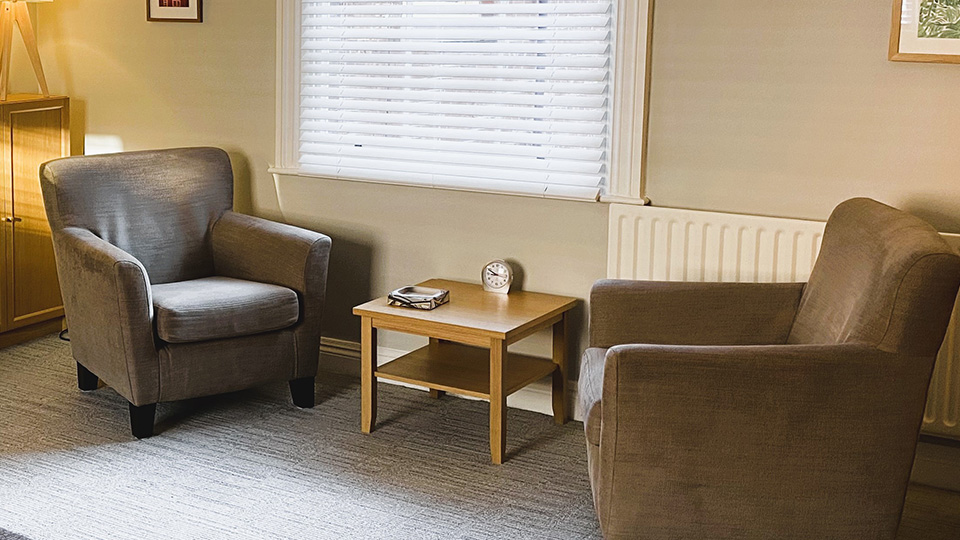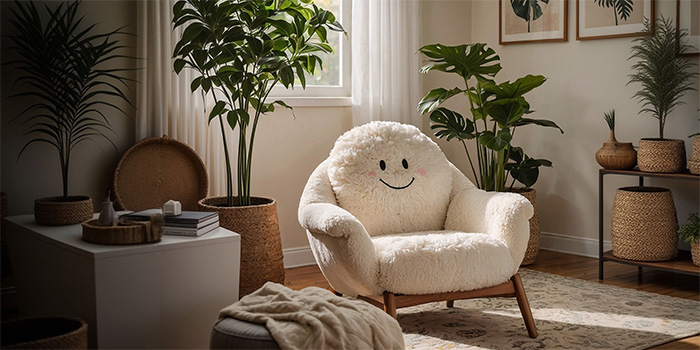Our therapeutic approach
We use a treatment model known as integrative psychotherapy. This allows us to attend to your emotional needs through listening and being supportive at the appropriate times. From the foundations of that relationship we introduce proven, structured treatments to achieve measurable results at your pace.
Find out more about our approach and the conditions we treat.


Our process How we work
Ready to get started?
Book onlineYou're not alone Who do we help?
We help adult clients with a range of anxiety-related disorders for which they may never have had a formal diagnosis. Many of our clients have been managing their symptoms of anxiety for years and even decades before they come to us.
Often people will come to us in a period of crisis looking for relief from panic attacks, intrusive thoughts, excessive worry, social problems or specific phobias. But after exploring their issues and making the necessary changes, they find that their symptoms have reduced significantly, and they better understand how to manage their anxiety more generally.
- Generalised Anxiety Disorder (GAD)
- Social Anxiety
- Post Traumatic Stress Disorder (PTSD)
- Obsessive-Compulsive Disorder (OCD)
- Panic Disorder
- Health Anxiety
- Relationship problems caused by anxiety
- Work Anxiety
- Education Anxiety
- Fear of Public Speaking
- Self Esteem issues
Our approach How our process works
Integrative psychotherapy combines the best bits of traditional psychotherapy and cognitive behaviour therapy techniques. Clients have long prized counselling as a great way to gain an understanding of themselves and develop the motivation to make changes to their lives. Where it has frustrated some is that it often doesn’t have a clear method for achieving those changes.
Likewise, CBT has been less successful at giving clients the time and space to feel heard and understand their complex needs before the process quickly moves on to the problem-solving stage. But it has an excellent track record of helping clients achieve changes once they’re motivated and clear about their goals.

What people love about traditional psychotherapy:
- Talking itself can be very therapeutic
- They get to hear themselves explaining their history and circumstances in order to make sense of themselves
- They are given the time and space to do this at their own pace
- They feel safe exploring their issues in a non-judgemental atmosphere
- They can gain insight into their problem in collaboration with the therapist
- It doesn’t introduce lots of technical jargon or try to fit a complex problem into a simple solution
- It’s very good at fostering acceptance about the things in life we can’t change
- It’s a great way to build motivation through a nurturing relationship with the therapist to be able to tolerate the difficult work that creates change
- It’s proven to be very effective at helping clients gain insight and take responsibility for their wellbeing
What people love about CBT type techniques:
- They’re very effective at helping people to make changes once they’re motivated to do so
- They’re good at producing a simplified model of a complex problem
- They break down complex problems into manageable steps
- You only ever work on one small step at a time, so you’re clear about what you’re doing
- They’re proven to be very effective at helping clients make changes
It's useful to think about the counselling relationship as the main body of the therapy. It surrounds everything we do and provides a non-judgemental space to explore and work. However, at times when clients are ready to make practical, real-world changes to achieve an identifiable goal, we may decide to switch into a more structured phase to achieve that particular goal using CBT type techniques.
The client is always in charge of this process and can return to a less directive way of working at any time throughout the process.
Learn more about how we integrate elements of CBT, ACT and EFT.

